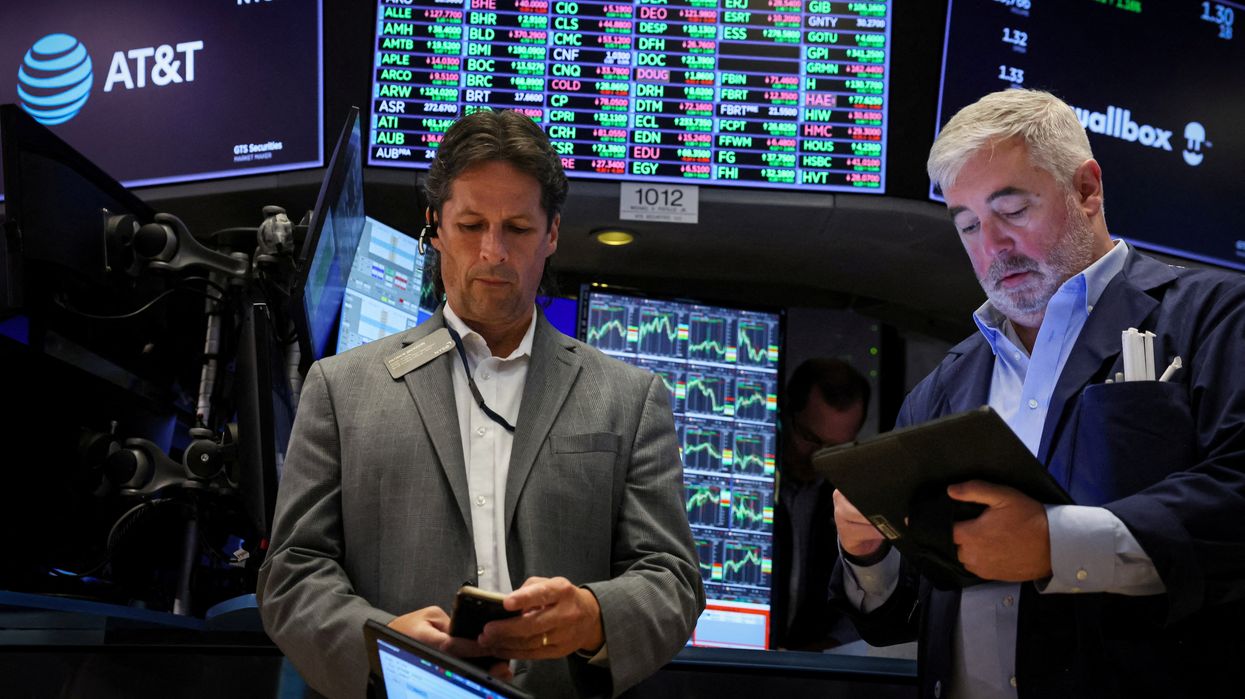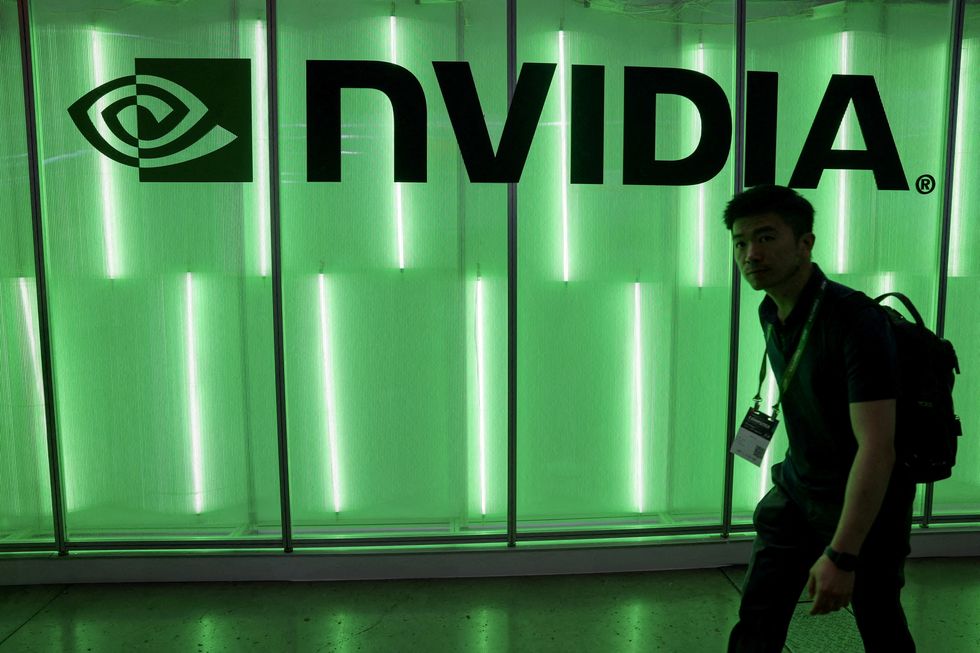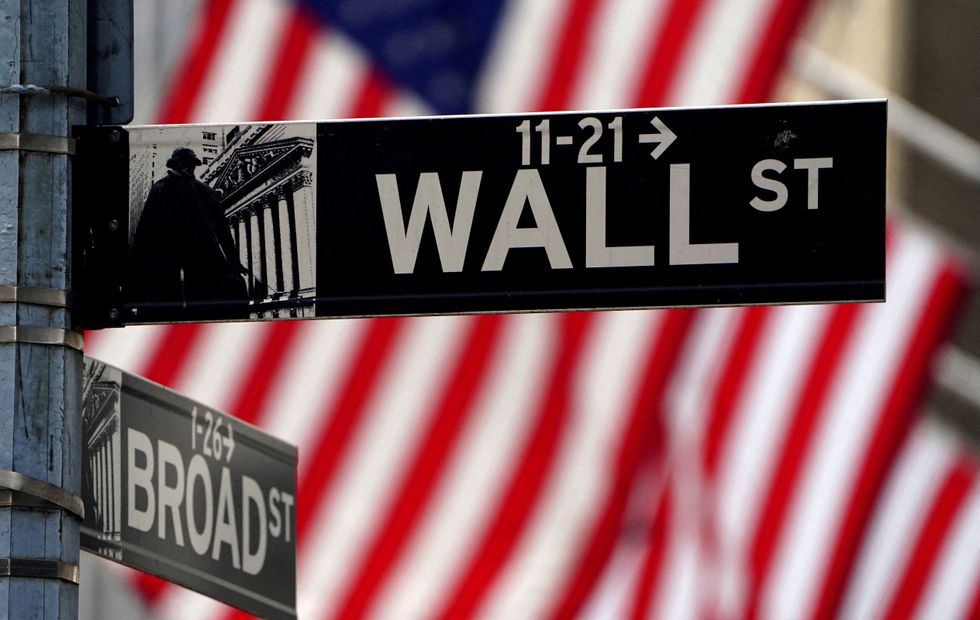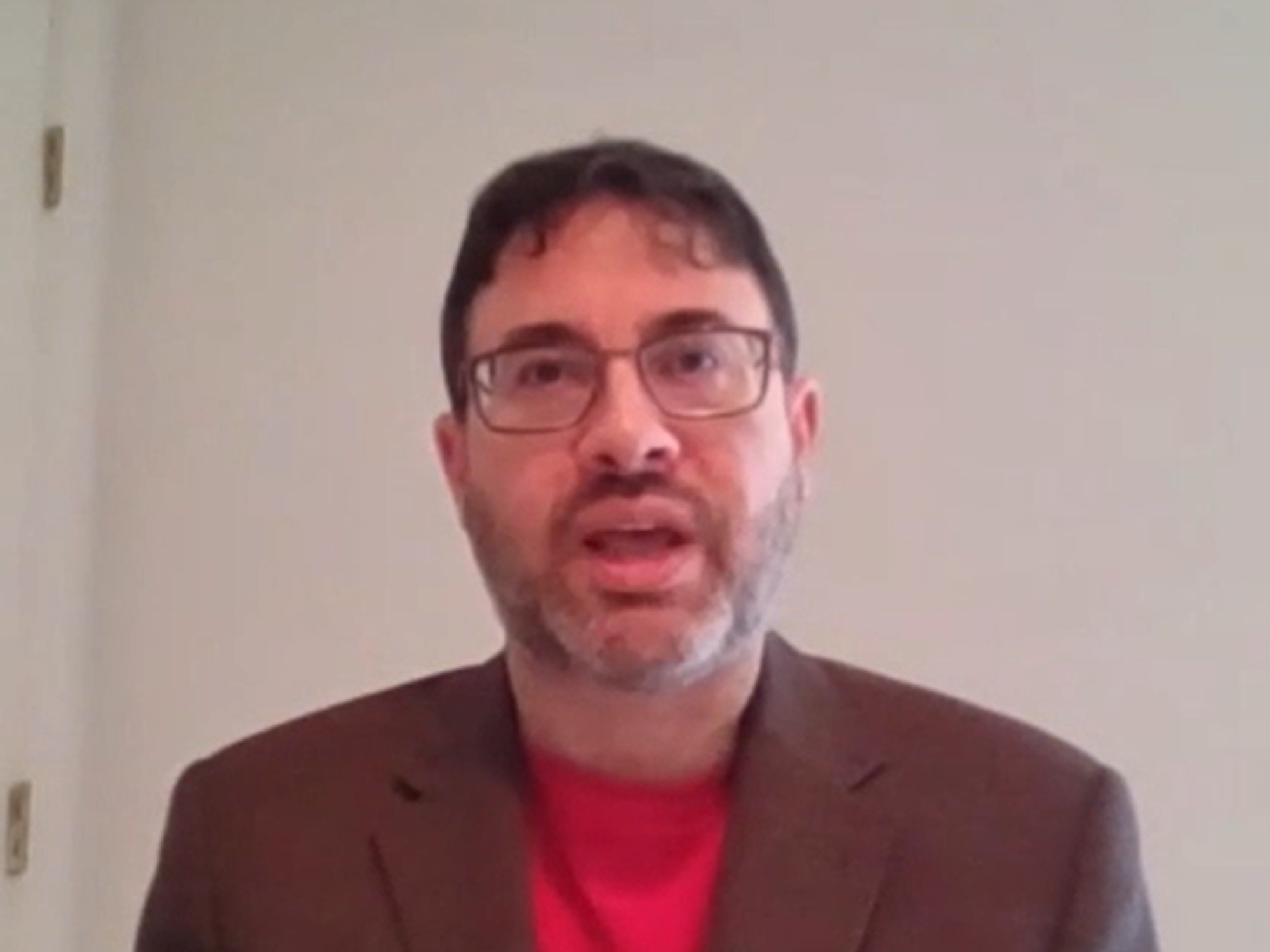Nvidia plunges 9% as recession fears rock Wall Street sparking heavy fall in US stocks

Traders on the New York Stock Exchange saw tech stocks plunge again on Tuesday
|Reuters
Tech stocks and chip-makers lead market sell-off as manufacturing data fuels recession concerns, with Nvidia shares dropping sharply
Don't Miss
Most Read
Latest
Wall Street's main indices tumbled on Tuesday, with the Dow Jones Industrial Average plunging more than 550 points amid renewed fears of an economic slowdown in the United States.
The sell-off was led by technology stocks, with Nvidia experiencing a sharp decline of more than 9%.
Other tech giants also suffered significant losses, with Google's parent company Alphabet and Apple both shedding more than 3% of their value.
The widespread market jitters were reflected in a spike of nearly 25% in the VIX, Wall Street's so-called 'fear gauge'.
The surge in volatility underscores growing investor unease about the economic outlook. The S&P 500 industrials sector was also hit hard, falling nearly 2%
Heavy equipment manufacturer Caterpillar and conglomerate 3M were among the biggest drags on the blue-chip Dow index.

Nvidia shares fell by more than 9% in New York on Tuesday
|Reuters
Investors were rattled by the latest US manufacturing data, which showed only a slight improvement in August from an eight-month low in July.
The overall trend continues to point to lacklustre factory activity, fuelling concerns about the health of the American economy.
Josh Jamner, investment strategy analyst at ClearBridge Investments, said: "The softer PMI surveys that were released this morning really accelerated a little bit of profit-taking that had played out."
He added: "If we're rooting for a soft landing over recession, it's certainly not what we hoped to see."
The tech-heavy Nasdaq Composite index hit a three-week low, weighed down by rate-sensitive mega-cap stocks.
Nvidia, which has been at the forefront of this year's AI-driven rally, saw its shares plummet by nearly 9.5% by early afternoon.
Microsoft also felt the pressure, with its stock declining nearly 2%.

Share prices fell sharply in New York amid recession fears
|Reuters
The broader technology sector, which has surged over 22% in 2024, led the sectoral declines with a 3.3% drop.
Semiconductor stocks were not spared, with the Philadelphia SE Semiconductor index plunging 5.7% and Nasdaq darling Micron falling 8%.
As of 2.30pm, the Dow Jones Industrial Average had fallen 569 points, or 1.37%, to 40,993.79. The S&P 500 had lost 109 points, or 1.93%, to 5,538.21. And the Nasdaq Composite suffered the steepest decline, shedding 542 points, or 3.06%, to 17,163.57.
Market participants are now anxiously awaiting a series of labour market reports due throughout the week.
The focus remains particularly intense on Friday's non-farm payrolls data for August.
It comes after July's report hinted at a greater-than-expected slowdown, sparking a global stock sell-off in early August.
Investors are also closely monitoring developments ahead of the US Federal Reserve's meeting later this month.
Fed Chair Jerome Powell's recent comments supporting forthcoming policy adjustments have heightened speculation about potential interest rate cuts.
According to the CME Group's FedWatch Tool, the odds of a 25-basis point interest rate cut currently stand at 63%. Meanwhile, the probability of a larger 50 basis point reduction is estimated at 37%.
Seven of the eleven S&P 500 sectors traded lower on Tuesday.
However, defensive sectors such as consumer staples, healthcare, and utilities saw marginal gains.
In company-specific news, Tesla bucked the negative trend, adding 0.6%. It followed a report suggesting the electric vehicle maker plans to produce a six-seat variant of its Model Y car in China from late 2025.
In contrast, troubled airline maker Boeing saw its stock plummet by 8.1% after Wells Fargo downgraded the shares to "underweight" from "equal weight".
Overall, declining issues outnumbered advancers by a 2.2-to-1 ratio on the NYSE and by a 3.22-to-1 ratio on the Nasdaq.
As September begins, traditionally a weak month for US equities, investors appear to be reassessing their positions and taking profits.
Earlier in the day London's FTSE 100 closed down 65 points, or 0.78%, at 8,298.46.










